Improving Allergy Management: A Teaching Report for Learner Nurses
VerifiedAdded on 2023/06/12
|9
|1041
|456
Report
AI Summary
This report details an educational intervention designed to improve learner nurses' knowledge and management skills related to allergies. It emphasizes the rationale behind focusing on allergy education due to its significant health impact. The report outlines educational theories such as cognition, social constructivism, multiple intelligence, and experiential learning, which are applied to enhance teaching effectiveness. Key components include PowerPoint presentations, question-answer techniques, and formative/summative assessments. A critical appraisal highlights the positive impact of the intervention on nurses' learning and service delivery. The discussion reflects on the teaching experience, emphasizing the need for continuous improvement using SMART initiatives and referencing various studies to support the strategies employed. Desklib provides access to this and other solved assignments for students.
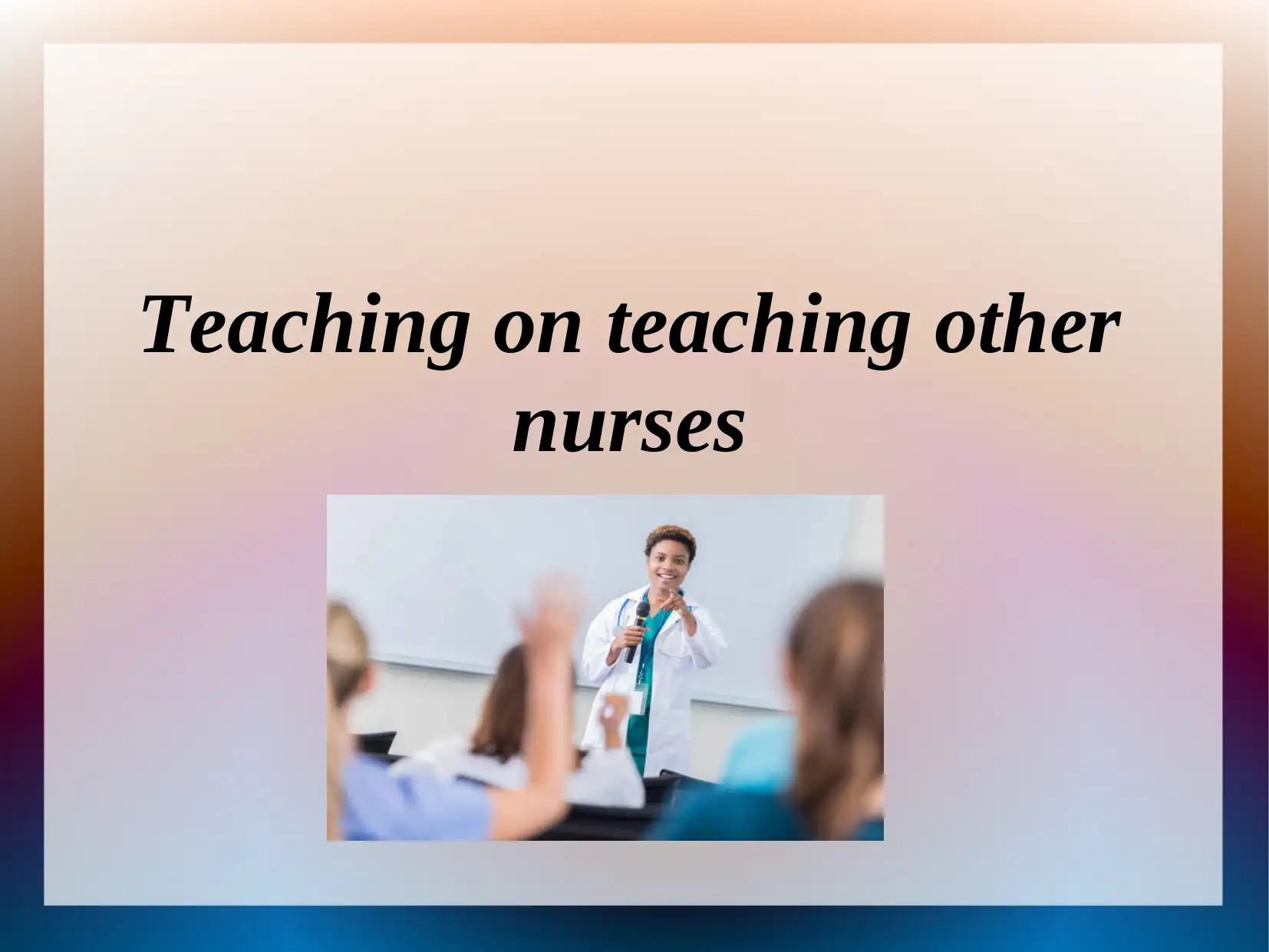
Teaching on teaching other
nurses
nurses
Paraphrase This Document
Need a fresh take? Get an instant paraphrase of this document with our AI Paraphraser
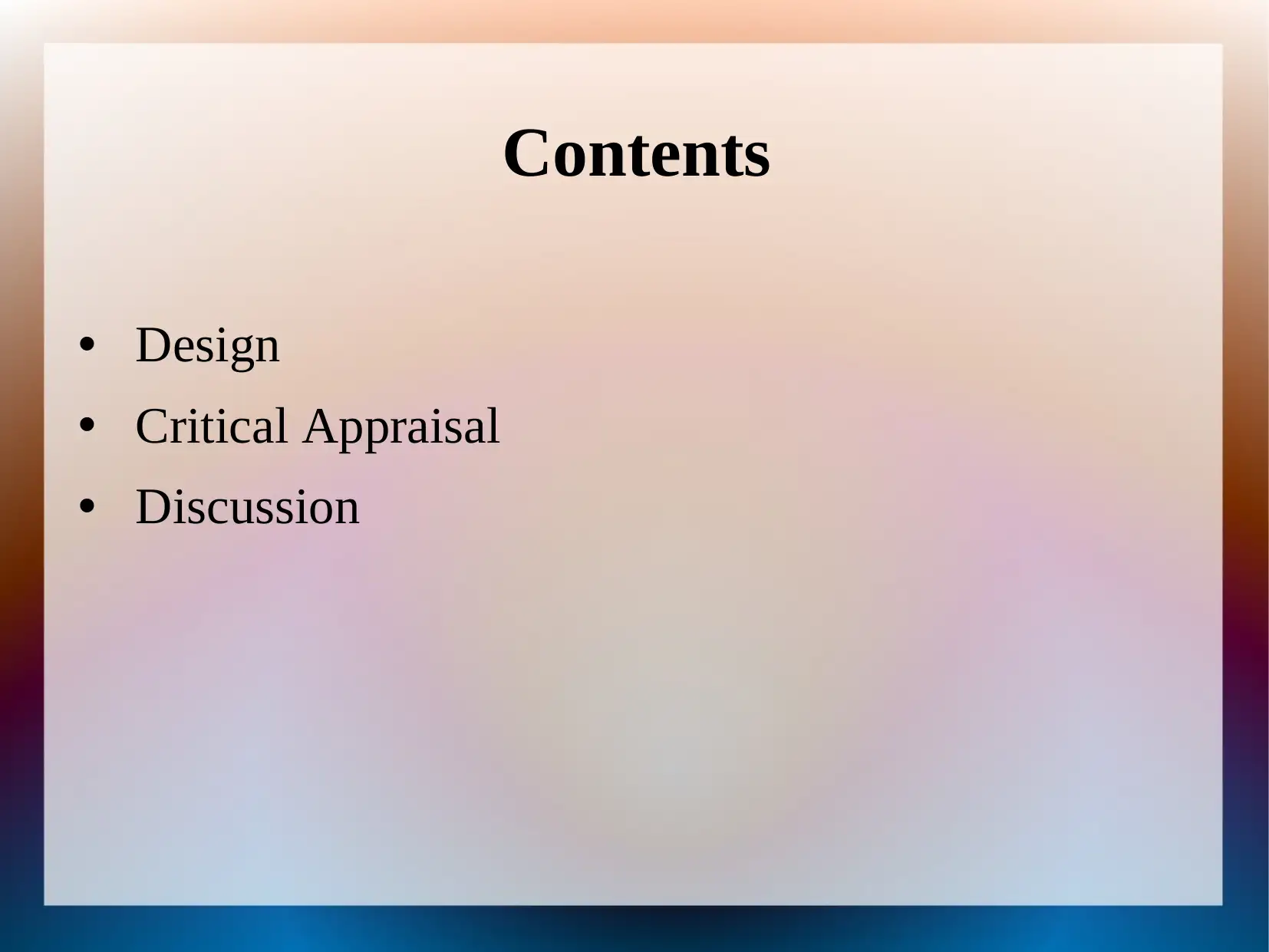
Contents
• Design
• Critical Appraisal
• Discussion
• Design
• Critical Appraisal
• Discussion
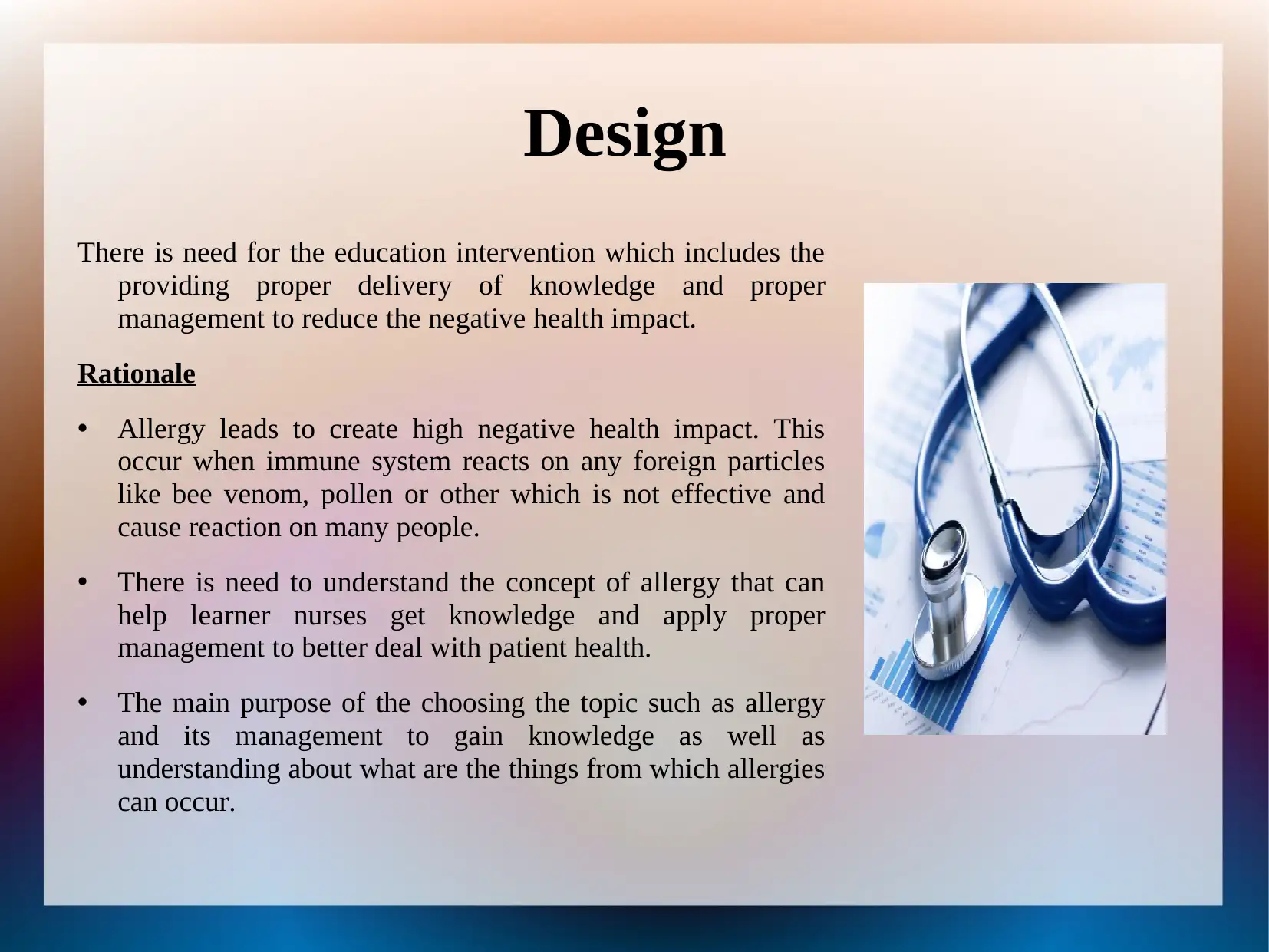
Design
There is need for the education intervention which includes the
providing proper delivery of knowledge and proper
management to reduce the negative health impact.
Rationale
• Allergy leads to create high negative health impact. This
occur when immune system reacts on any foreign particles
like bee venom, pollen or other which is not effective and
cause reaction on many people.
• There is need to understand the concept of allergy that can
help learner nurses get knowledge and apply proper
management to better deal with patient health.
• The main purpose of the choosing the topic such as allergy
and its management to gain knowledge as well as
understanding about what are the things from which allergies
can occur.
There is need for the education intervention which includes the
providing proper delivery of knowledge and proper
management to reduce the negative health impact.
Rationale
• Allergy leads to create high negative health impact. This
occur when immune system reacts on any foreign particles
like bee venom, pollen or other which is not effective and
cause reaction on many people.
• There is need to understand the concept of allergy that can
help learner nurses get knowledge and apply proper
management to better deal with patient health.
• The main purpose of the choosing the topic such as allergy
and its management to gain knowledge as well as
understanding about what are the things from which allergies
can occur.
⊘ This is a preview!⊘
Do you want full access?
Subscribe today to unlock all pages.

Trusted by 1+ million students worldwide
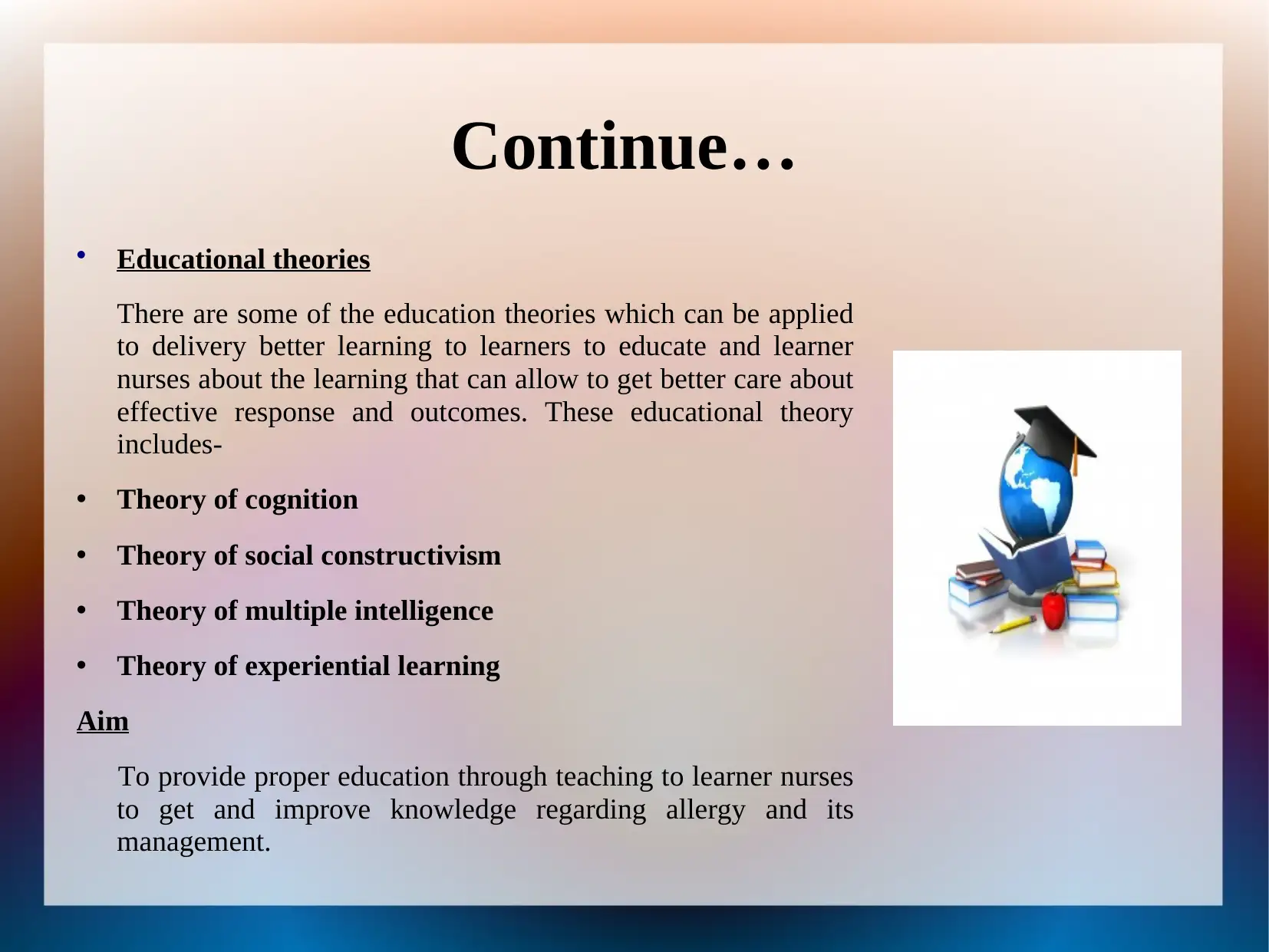
Continue…
Educational theories
There are some of the education theories which can be applied
to delivery better learning to learners to educate and learner
nurses about the learning that can allow to get better care about
effective response and outcomes. These educational theory
includes-
• Theory of cognition
• Theory of social constructivism
• Theory of multiple intelligence
• Theory of experiential learning
Aim
To provide proper education through teaching to learner nurses
to get and improve knowledge regarding allergy and its
management.
Educational theories
There are some of the education theories which can be applied
to delivery better learning to learners to educate and learner
nurses about the learning that can allow to get better care about
effective response and outcomes. These educational theory
includes-
• Theory of cognition
• Theory of social constructivism
• Theory of multiple intelligence
• Theory of experiential learning
Aim
To provide proper education through teaching to learner nurses
to get and improve knowledge regarding allergy and its
management.
Paraphrase This Document
Need a fresh take? Get an instant paraphrase of this document with our AI Paraphraser
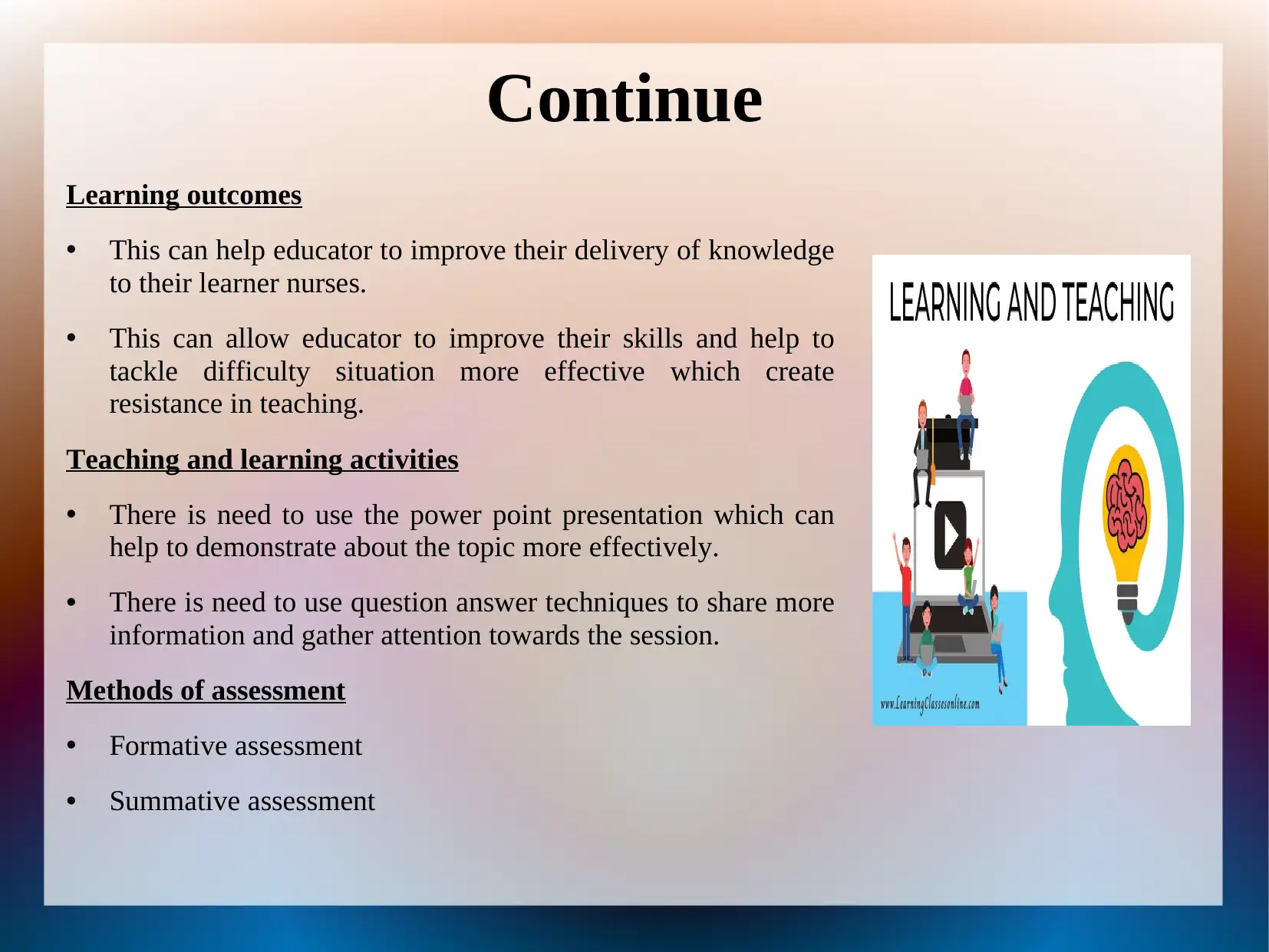
Continue
Learning outcomes
• This can help educator to improve their delivery of knowledge
to their learner nurses.
• This can allow educator to improve their skills and help to
tackle difficulty situation more effective which create
resistance in teaching.
Teaching and learning activities
• There is need to use the power point presentation which can
help to demonstrate about the topic more effectively.
• There is need to use question answer techniques to share more
information and gather attention towards the session.
Methods of assessment
• Formative assessment
• Summative assessment
Learning outcomes
• This can help educator to improve their delivery of knowledge
to their learner nurses.
• This can allow educator to improve their skills and help to
tackle difficulty situation more effective which create
resistance in teaching.
Teaching and learning activities
• There is need to use the power point presentation which can
help to demonstrate about the topic more effectively.
• There is need to use question answer techniques to share more
information and gather attention towards the session.
Methods of assessment
• Formative assessment
• Summative assessment
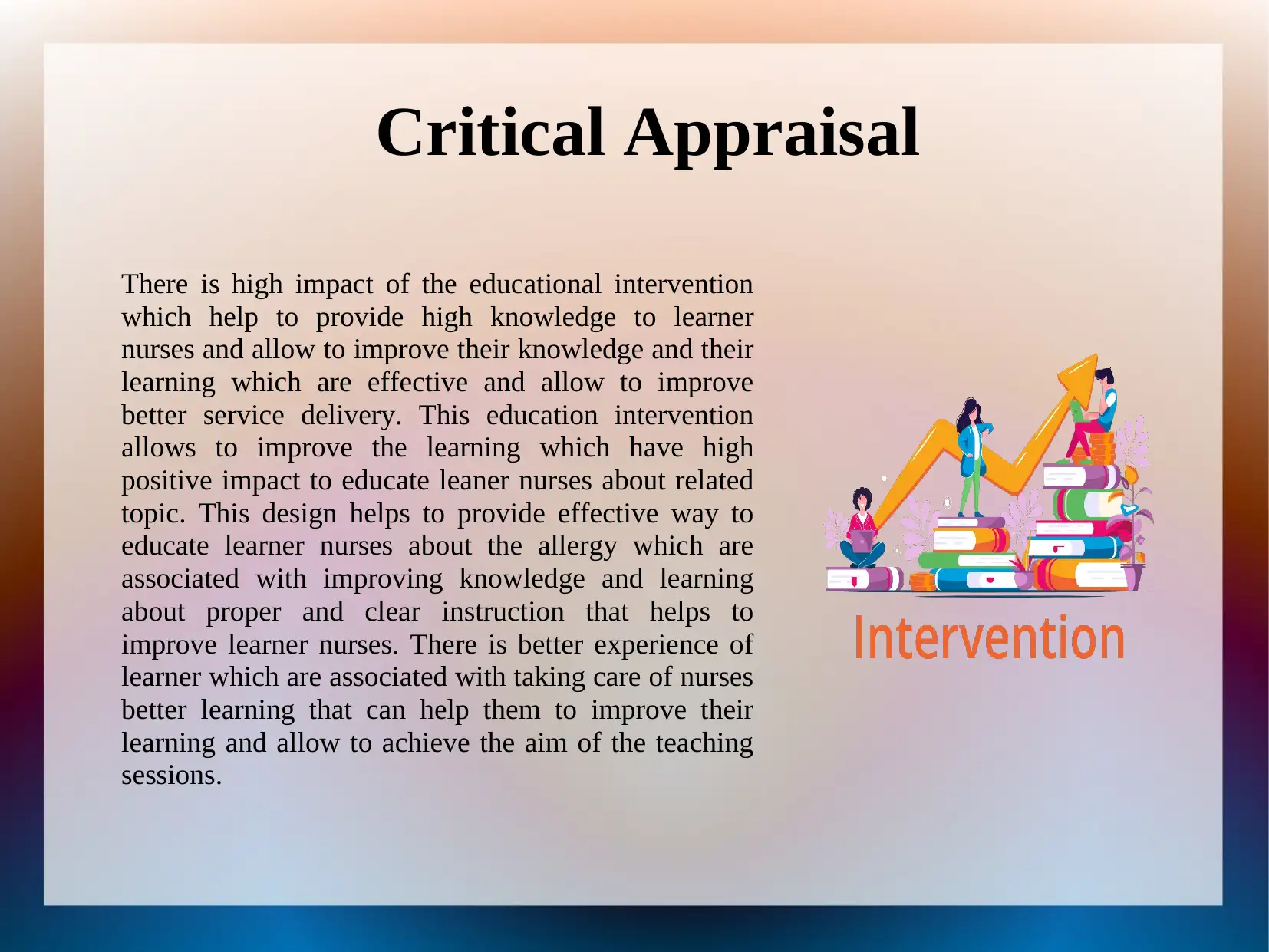
Critical Appraisal
There is high impact of the educational intervention
which help to provide high knowledge to learner
nurses and allow to improve their knowledge and their
learning which are effective and allow to improve
better service delivery. This education intervention
allows to improve the learning which have high
positive impact to educate leaner nurses about related
topic. This design helps to provide effective way to
educate learner nurses about the allergy which are
associated with improving knowledge and learning
about proper and clear instruction that helps to
improve learner nurses. There is better experience of
learner which are associated with taking care of nurses
better learning that can help them to improve their
learning and allow to achieve the aim of the teaching
sessions.
There is high impact of the educational intervention
which help to provide high knowledge to learner
nurses and allow to improve their knowledge and their
learning which are effective and allow to improve
better service delivery. This education intervention
allows to improve the learning which have high
positive impact to educate leaner nurses about related
topic. This design helps to provide effective way to
educate learner nurses about the allergy which are
associated with improving knowledge and learning
about proper and clear instruction that helps to
improve learner nurses. There is better experience of
learner which are associated with taking care of nurses
better learning that can help them to improve their
learning and allow to achieve the aim of the teaching
sessions.
⊘ This is a preview!⊘
Do you want full access?
Subscribe today to unlock all pages.

Trusted by 1+ million students worldwide
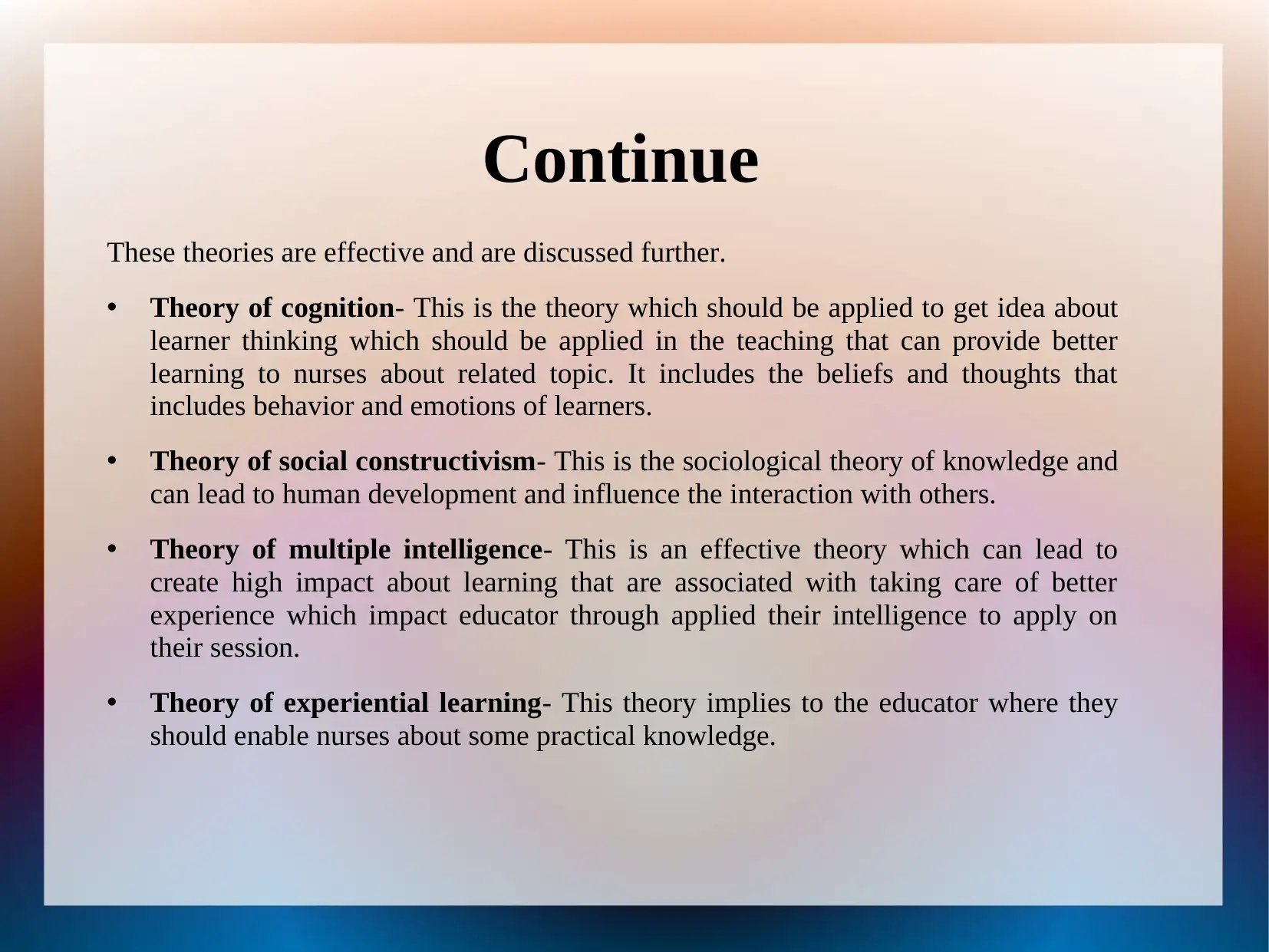
Continue
These theories are effective and are discussed further.
• Theory of cognition- This is the theory which should be applied to get idea about
learner thinking which should be applied in the teaching that can provide better
learning to nurses about related topic. It includes the beliefs and thoughts that
includes behavior and emotions of learners.
• Theory of social constructivism- This is the sociological theory of knowledge and
can lead to human development and influence the interaction with others.
• Theory of multiple intelligence- This is an effective theory which can lead to
create high impact about learning that are associated with taking care of better
experience which impact educator through applied their intelligence to apply on
their session.
• Theory of experiential learning- This theory implies to the educator where they
should enable nurses about some practical knowledge.
These theories are effective and are discussed further.
• Theory of cognition- This is the theory which should be applied to get idea about
learner thinking which should be applied in the teaching that can provide better
learning to nurses about related topic. It includes the beliefs and thoughts that
includes behavior and emotions of learners.
• Theory of social constructivism- This is the sociological theory of knowledge and
can lead to human development and influence the interaction with others.
• Theory of multiple intelligence- This is an effective theory which can lead to
create high impact about learning that are associated with taking care of better
experience which impact educator through applied their intelligence to apply on
their session.
• Theory of experiential learning- This theory implies to the educator where they
should enable nurses about some practical knowledge.
Paraphrase This Document
Need a fresh take? Get an instant paraphrase of this document with our AI Paraphraser
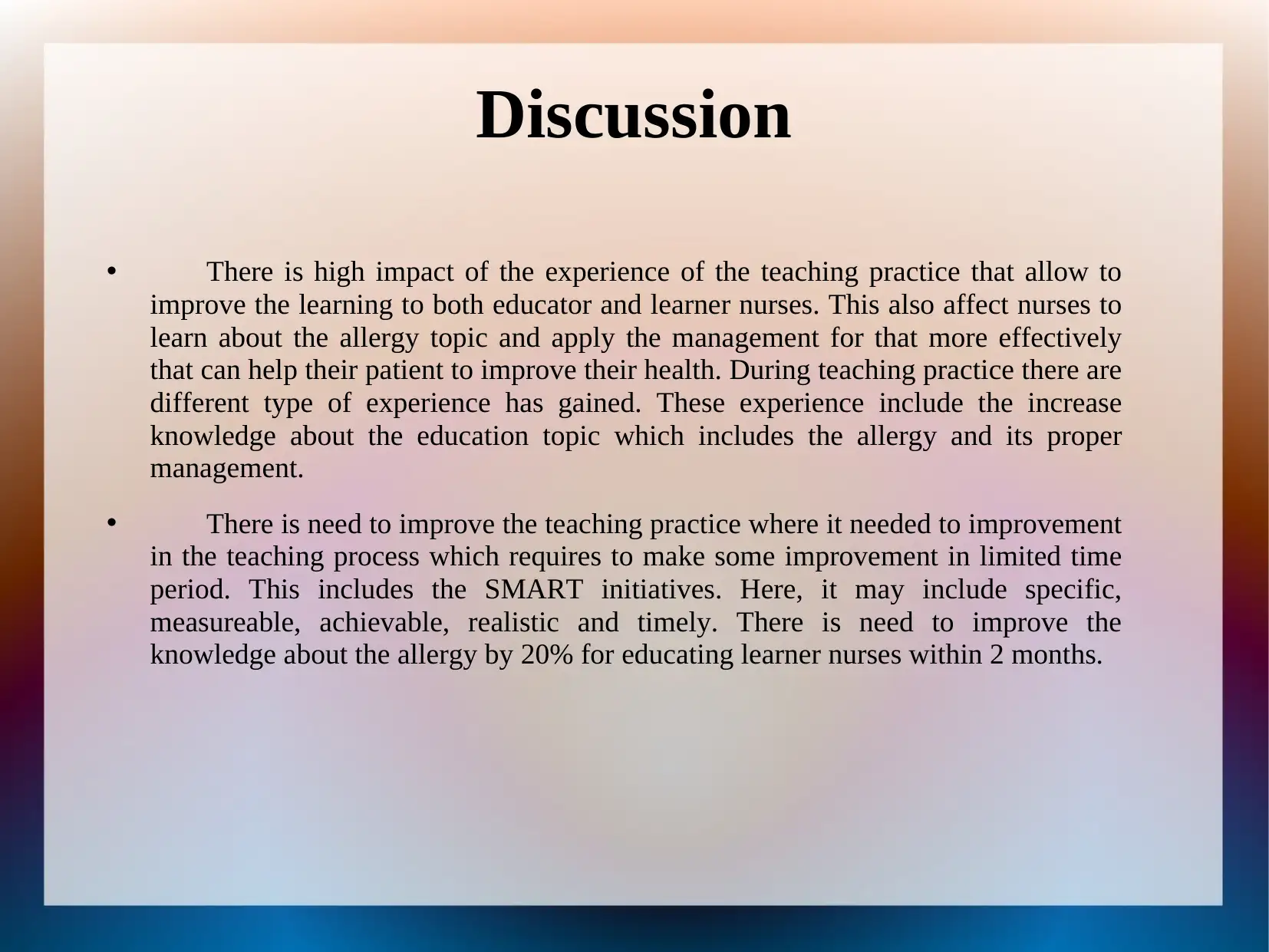
Discussion
• There is high impact of the experience of the teaching practice that allow to
improve the learning to both educator and learner nurses. This also affect nurses to
learn about the allergy topic and apply the management for that more effectively
that can help their patient to improve their health. During teaching practice there are
different type of experience has gained. These experience include the increase
knowledge about the education topic which includes the allergy and its proper
management.
• There is need to improve the teaching practice where it needed to improvement
in the teaching process which requires to make some improvement in limited time
period. This includes the SMART initiatives. Here, it may include specific,
measureable, achievable, realistic and timely. There is need to improve the
knowledge about the allergy by 20% for educating learner nurses within 2 months.
• There is high impact of the experience of the teaching practice that allow to
improve the learning to both educator and learner nurses. This also affect nurses to
learn about the allergy topic and apply the management for that more effectively
that can help their patient to improve their health. During teaching practice there are
different type of experience has gained. These experience include the increase
knowledge about the education topic which includes the allergy and its proper
management.
• There is need to improve the teaching practice where it needed to improvement
in the teaching process which requires to make some improvement in limited time
period. This includes the SMART initiatives. Here, it may include specific,
measureable, achievable, realistic and timely. There is need to improve the
knowledge about the allergy by 20% for educating learner nurses within 2 months.
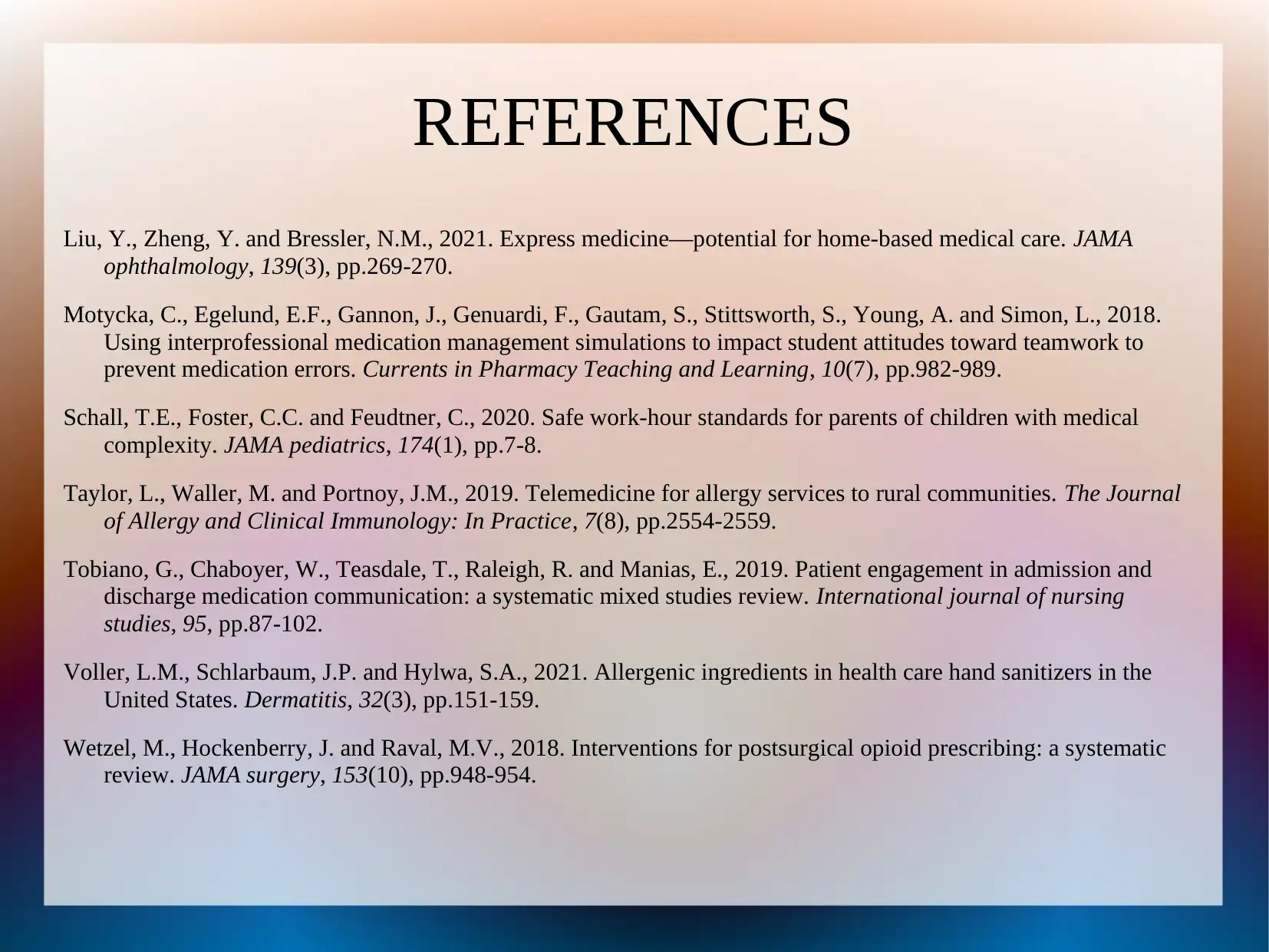
REFERENCES
Liu, Y., Zheng, Y. and Bressler, N.M., 2021. Express medicine—potential for home-based medical care. JAMA
ophthalmology, 139(3), pp.269-270.
Motycka, C., Egelund, E.F., Gannon, J., Genuardi, F., Gautam, S., Stittsworth, S., Young, A. and Simon, L., 2018.
Using interprofessional medication management simulations to impact student attitudes toward teamwork to
prevent medication errors. Currents in Pharmacy Teaching and Learning, 10(7), pp.982-989.
Schall, T.E., Foster, C.C. and Feudtner, C., 2020. Safe work-hour standards for parents of children with medical
complexity. JAMA pediatrics, 174(1), pp.7-8.
Taylor, L., Waller, M. and Portnoy, J.M., 2019. Telemedicine for allergy services to rural communities. The Journal
of Allergy and Clinical Immunology: In Practice, 7(8), pp.2554-2559.
Tobiano, G., Chaboyer, W., Teasdale, T., Raleigh, R. and Manias, E., 2019. Patient engagement in admission and
discharge medication communication: a systematic mixed studies review. International journal of nursing
studies, 95, pp.87-102.
Voller, L.M., Schlarbaum, J.P. and Hylwa, S.A., 2021. Allergenic ingredients in health care hand sanitizers in the
United States. Dermatitis, 32(3), pp.151-159.
Wetzel, M., Hockenberry, J. and Raval, M.V., 2018. Interventions for postsurgical opioid prescribing: a systematic
review. JAMA surgery, 153(10), pp.948-954.
Liu, Y., Zheng, Y. and Bressler, N.M., 2021. Express medicine—potential for home-based medical care. JAMA
ophthalmology, 139(3), pp.269-270.
Motycka, C., Egelund, E.F., Gannon, J., Genuardi, F., Gautam, S., Stittsworth, S., Young, A. and Simon, L., 2018.
Using interprofessional medication management simulations to impact student attitudes toward teamwork to
prevent medication errors. Currents in Pharmacy Teaching and Learning, 10(7), pp.982-989.
Schall, T.E., Foster, C.C. and Feudtner, C., 2020. Safe work-hour standards for parents of children with medical
complexity. JAMA pediatrics, 174(1), pp.7-8.
Taylor, L., Waller, M. and Portnoy, J.M., 2019. Telemedicine for allergy services to rural communities. The Journal
of Allergy and Clinical Immunology: In Practice, 7(8), pp.2554-2559.
Tobiano, G., Chaboyer, W., Teasdale, T., Raleigh, R. and Manias, E., 2019. Patient engagement in admission and
discharge medication communication: a systematic mixed studies review. International journal of nursing
studies, 95, pp.87-102.
Voller, L.M., Schlarbaum, J.P. and Hylwa, S.A., 2021. Allergenic ingredients in health care hand sanitizers in the
United States. Dermatitis, 32(3), pp.151-159.
Wetzel, M., Hockenberry, J. and Raval, M.V., 2018. Interventions for postsurgical opioid prescribing: a systematic
review. JAMA surgery, 153(10), pp.948-954.
⊘ This is a preview!⊘
Do you want full access?
Subscribe today to unlock all pages.

Trusted by 1+ million students worldwide
1 out of 9
Related Documents
Your All-in-One AI-Powered Toolkit for Academic Success.
+13062052269
info@desklib.com
Available 24*7 on WhatsApp / Email
![[object Object]](/_next/static/media/star-bottom.7253800d.svg)
Unlock your academic potential
Copyright © 2020–2026 A2Z Services. All Rights Reserved. Developed and managed by ZUCOL.




